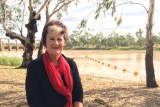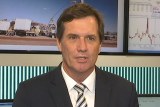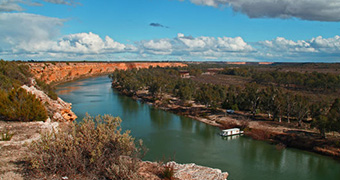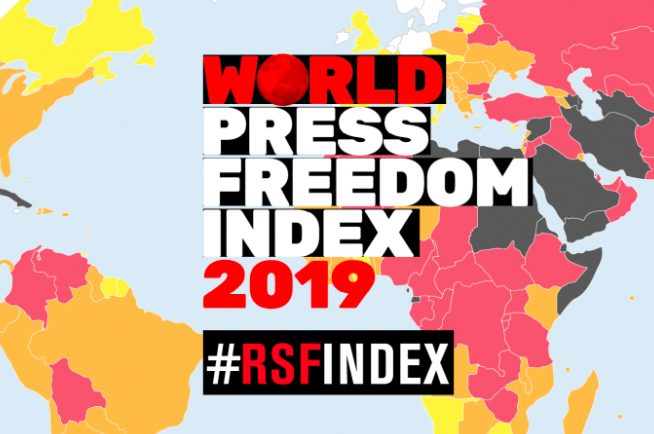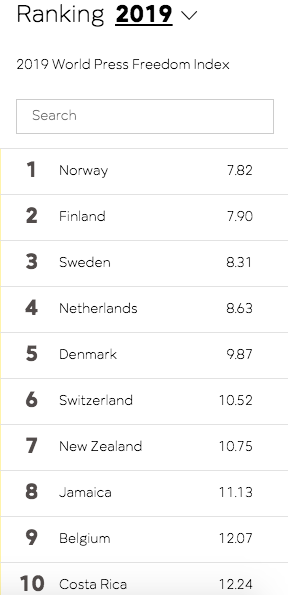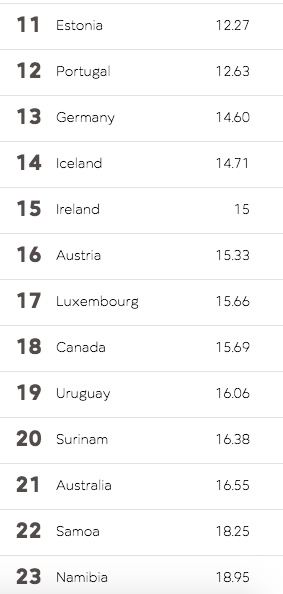Has anyone checked with Hunt and Frydenberg - as previous Environment Ministers - on their roles in this?
There is a policy overlap between Environment and Agriculture portfolios on water. Environment seems to have responsibility for the management of Commonwealth owned water, as well as the lower Murray Darling Basin. Agriculture has water and the Murray Darling Basin authority ( a gift to the Nats). Can imagine the turf fights between portfolios.
Reportedly, when the Queensland Government proposed that the Commonwealth purchase the two properties as a means of buy back, Hunt as Environment Minister rejected it.
What is not known is how much the property purchases would have cost.
On one of the twitter feeds I think it stated the cost of one of the properties, purchased outright and including the infrastructure in place AND water licences was $123M.
Instead ‘we’ got some of the runoff for $80M, even tho they haven’t demolished the dams, so the water won’t actually make it off the property. And who’s to say next farm down the line doesn’t just suck it all back out of the system?
What’s tome to be alive…
Yes you are right. ABC Online, not very flattering for Barnaby.
Did Barnaby Joyce miss an opportunity to get a better deal on water buybacks?
A Murray-Darling Basin community leader says the former agriculture minister originally opposed water purchases from the St George properties Kia Ora and Clyde, as the Queensland Government suggests the Commonwealth failed to act on a better deal.
Key points:
- Former mayor says Barnaby Joyce was originally opposed to water buybacks to meet water targets
- She said eyebrows were raised in the community when the $80m buybacks for 28GL of overland flow water occurred
- The Qld Natural Resources Minister says he originally supported buying two properties with 57GL of water worth $123m
In 2017, when Barnaby Joyce was also the water minister, the Department of Agriculture and Water Resources bought 28 gigalitres of water from Eastern Australia Agriculture, the owners of the St George properties and a company once linked to now-Energy Minister Angus Taylor.
Both Mr Taylor and Mr Joyce deny breaching any rules in the transaction.
Now the former mayor of the Balonne Shire Council, Donna Stewart, has told ABC Rural that Mr Joyce was originally opposed to the idea of purchasing overland flow licences at St George.
“Barnaby was opposed to it because I think he realised that buying such a large volume of water right on the doorstep of St George was going to have a very severe impact on the town and the surrounding people,” she said.
(ABC News: Arlie Felton-Taylor, file photo)
Ms Stewart said she did not believe Mr Joyce had an alternative plan, but he had been under increasing pressure to meet water recovery targets.
“It sticks out like the proverbial sore thumb, having to provide water to meet those targets,” she said.
“It was quite obvious that Kia Ora had a big holding of water and that they would be the ones that would find the solution to the problems that they were encountering.”
Ms Stewart said the price of almost $80 million paid by the Commonwealth for 28GL of overland flow raised eyebrows in the community.
“People were quite amazed at the price, but when it’s the only way left of meeting those targets of the [basin] plan, it’s pretty obvious that … when you’re in that situation and you need that [water] to meet those targets you were going to increase the price of what had been paid in the past,” she said.
Missed opportunity for a better deal?
In a combative interview with Radio National on Monday, Mr Joyce suggested that the Queensland Labor Government had recommended the water purchase in the first place and should wear any blame for “a bad deal”.
(ABC News, file photo)
But Queensland Natural Resources Minister Anthony Lynham told the ABC today he had supported a very different deal in 2015, and that the Commonwealth had wasted an opportunity.
“Bob Baldwin was the assistant [environment] minister, but he was responsible for water, and when I had my first ever ministerial conference Bob Baldwin introduced me to the concept of the Eastern Agricultural properties where there were two properties available with 57GL of water available,” Dr Lynham said.
Dr Lynham said that in 2015, working with Mr Baldwin, the Queensland Government had expressed support for the potential purchase of the properties Kia Ora and Clyde, including all the water rights.
“We thought that this was a good deal for Queensland, it would help us meet our commitments to the Murray-Darling Basin Plan because it was the water, the two properties, and the infrastructure,” he said.
But Dr Lynham said discussion around the proposal was discontinued by the Commonwealth in late 2015, coinciding with Mr Baldwin being replaced as minister by Mr Joyce.
What is the Murray-Darling Basin Plan again?
“We’re still 12GL short of our commitment as it stands today, so we would have met our entire Murray-Darling Basin commitment by purchasing these two properties,” Dr Lynham said.
"These properties had been on the market for quite some time, it was a real buyer’s market back in 2015.
"Price is Barnaby Joyce’s responsibility, but we did a desktop evaluation and we came to a figure of $123 million for the two properties.
“So do your sums — 57GL with all the infrastructure for a desk top evaluation of $123 million, versus paying $80 million dollars for 28GL of overland flow.”
Following advice

Play
Space to play or pause, M to mute, left and right arrows to seek, up and down arrows for volume.
WATCH
1m 40s
Barnaby Joyce defends his role in controversial water buyback
( ABC News )
Mr Joyce claimed he approved the buyback on the advice from the Department of Agriculture and was “completely within the remit of the [water buyback] policy”.
Rural news in your inbox?
Subscribe for the national headlines of the day.
“That was a decision for the department. I’m at arm’s length to that,” he said.
“I am not responsible for the vendor or the purchase.”
He said Liberal MP Greg Hunt, who was agriculture minister in 2015 when an earlier deal was rejected, would have been acting on departmental advice also, but Mr Joyce offered no insight into why the water buyback went ahead in 2017 and for a higher price.
“I’m quite happy if people want to test the veracity of what I’m saying to do so by whichever means they want,” Mr Joyce said.
“I’m absolutely confident that we have done absolutely nothing wrong.”

Play
Space to play or pause, M to mute, left and right arrows to seek, up and down arrows for volume.
WATCH
30s
Scott Morrison says Barnaby Joyce acted within the legislation
( ABC News )
Current Agriculture Minister David Littleproud has announced he has asked the Auditor-General to review all water buybacks from 2008 onwards to ensure confidence in the Murray-Darling Basin Plan.
“I’ve lived for the Murray-Darling Basin Plan for the last 16 months, I want to make sure there continues to be confidence in it,” Mr Littleproud said.
"[The Auditor-General] will be looking at whether everything was done within the confines of the legislation.
“That’s why we have these processes so we don’t rush into a Royal Commission every time we look sideways.”
“So do your sums — 57GL with all the infrastructure for a desk top evaluation of $123 million, versus paying $80 million dollars for 28GL of overland flow.”
Australia falls in World Press Freedom Index, with report citing PM, media mergers and ‘draconian’ laws
by Vivienne Kelly
3-4 minutes
Australia has slipped two places in the Reporters Without Borders World Press Freedom Index, coming in at number 21 out of 180 countries.
The report noted the merger of Nine and Fairfax, conservative Prime Minister Scott Morrison, “draconian legislation” and Australia’s tough defamation laws all played a part in putting the country’s media at risk.
Australia placed behind New Zealand, Canada and Costa Rica
“Australia has good public media, but the concentration of media ownership is one of the highest in the world,” the report said. “It became even more concentrated in July 2018, when Nine Entertainment took over Fairfax Media group. Mainly concerned with business efficiencies and cost-cutting, the new entity resembles Australia’s other media giant, Rupert Murdoch’s News Corporation.”
The report also had a dig at “very conservative” Morrison, and noted the government had “abandoned any attempt to regulate the media market”.
“The space left for demanding investigative journalism has also been reduced by the fact that independent investigative reporters and whistleblowers face draconian legislation,” the report continued. “Australia adopted one of the toughest defamation laws in the world’s liberal democracies in 2018, while its laws on terrorism and national security make covering these issues almost impossible.
“At the same time, the migrant detention centres run by government contractors on the islands of Manus and Nauru are in practice inaccessible to journalists and have become news and information black holes.”
The top 10
The overall tone of the report was one of fear and concern, noting a rising “hatred of journalists” has “degenerated into violence”.
“The number of countries regarded as safe, where journalists can work in complete security, continues to decline, while authoritarian regimes continue to tighten their grip on the media.”
Norway held onto its number one position in the Index, which reported: “Today, the media are free and journalists are not subject to censorship or political pressure. Violence against journalists and media outlets is rare, although several cases of racist cyber-harassment have been reported.”
Turkmenistan placed last due to a government-controlled media, highly-censored internet, and the harassment, assault and death of journalists.
Australia’s place in the world
The Index relies on a questionnaire of 87 questions – translated into 20 languages – posed to media professionals, lawyers and sociologists. It is then combined with data on abuses and violence against journalists during the assessment period.
Zero is the best possible score, while 100 is the worst.
Chart-topping Norway had 7.82, Australia was on 16.55, whilst Turkmenistan had 85.44.
Seems there was a realignment of portfolio responsibilities after the last election, with the Agriculture portfolio ( always a Nat under the Coalition) assuming prime carriage for water.
Hunt was Environment Minister until January 2017 ( taking over the Health portfolio on Ley’s return to the back bench ) ; succeeded by Frydenberg up to the Morrison coup (succeeded by Price as Environmemt Minister)
So, my guess is that three Coalition Ministers could have been directly or indirectly involved in the buy back decision. Almost certainly it was Hunt who rejected the property purchase.
According to a report in the Australian, the Office of the Commonwealth Water Holder( under the Environment portfolio) gave input to the water buy back decision, but refused to provide any information other than that on the public record ( i.e. redacted documents provided to the Senate Committee). So, Tony Burke should be chasing down the Environment agencies as well as Agriculture for documents
Has Angus TAYLOR made anything other than a ‘nothing to see here statement’?
Find it hard to believe that you’d establish and run a company in a tax haven and then just derive no benefit from it a few years later.
He’ll reap millions out of this in various ways, as will his brothers. Set for a very comfortable life with all the water he’ll ever need if he wasn’t already. Champion of Oz Ag
Could somebody explain something to me? I thought that farmers pay for rainwater that falls on their properties? Why does the government have to pay this company for water? I’m really confused about this whole watergate issue.
Setting up a company in the Caymans (or other tax havens) should almost be a crime in itself.
Read up a bit in this thread, there’s some links to very succinct summaries of this harmless bit of ol fashioned wheelin dealin
Unbelievably, this election race is tightening. Proof of corruption within the LNP surfaces and more people decide they want to vote for them???
WTF?
Idiot times, idiot nation
MSM has to be having a massive influence.
Rusted on right wing voters express their displeasure between elections in the polls, but when the time comes, they go back to to the Tories like a dog returning to its vomit. (To use a phrase).
What are you basing this on?
Based on what? Feels like the margin is widening to me
Well in good news to you left-leaning liberal (not LNP) nut-jobs, my first time voting daughter has advised she will be voting Labor, she says the Libs suck and don’t care about people.
She makes me proud.
Final party list and other info below. Some great whacko names (and luckily a lot of the previous whackos from last time around are gone; though I suspect a lot of the same culprits may be involved).
